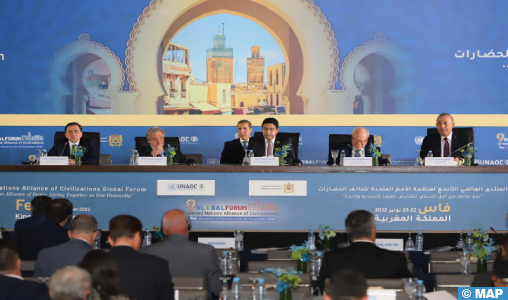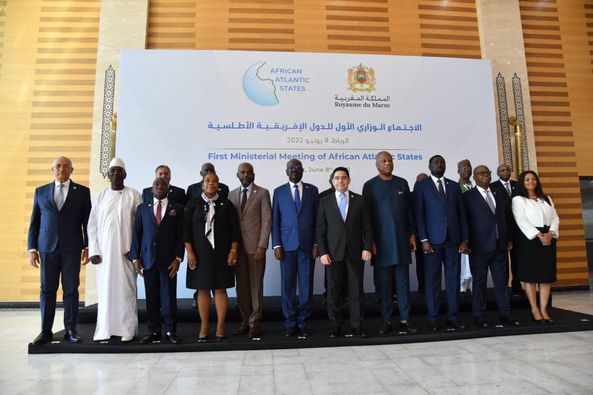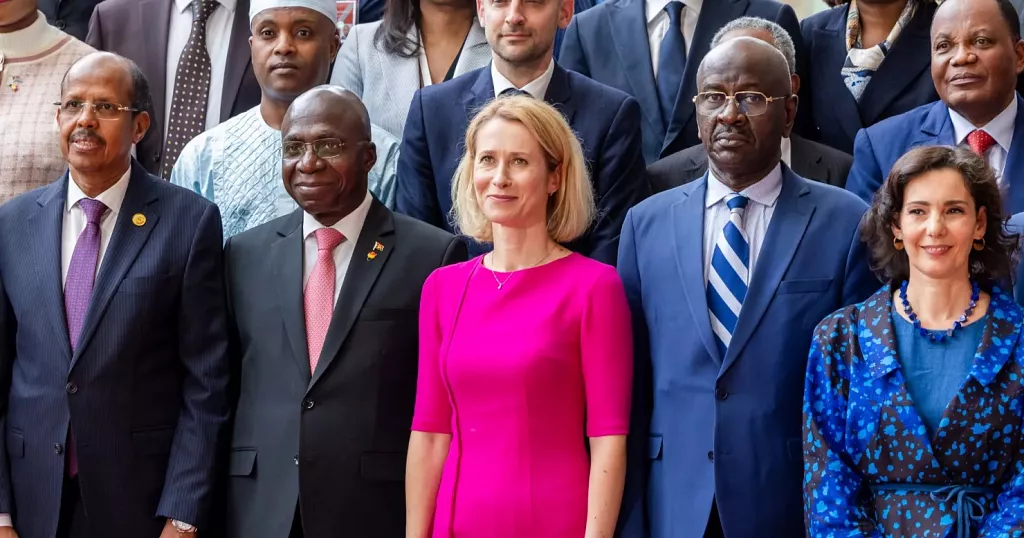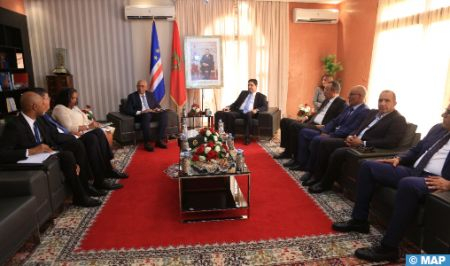The ministerial meeting held as part of the 9th Global Forum of the United Nations Alliance of Civilizations (UNAOC) ended Tuesday evening with the adoption of the Fez Declaration which underlined that the UNAOC has achieved its main objective, mainly standing as a truly global undertaking, with universal aims seeking to raise awareness to the urgent need to promote responsible leadership in all fields of action.
The Fez Declaration recognized “the important contribution to the debates, here in Fez, by youth, particularly African youth”, while welcoming their commitment to lead by the example through involvement in UNAOC activities related to education, media and migration.
The document called for “the full implementation of the announcements and commitments agreed upon in Fez Forum, so that Governments, with the support of the civil society, can overcome challenges and move forward towards the goals of living together in peaceful and inclusive societies for sustainable development.”
Also, the Declaration welcomed the convening of the 9th UNAOC Global Forum, for the first time on the African continent, and particularly in the heart of the historical city of Fez, “a land of ancestral character and deep-rooted spiritualism,” and praised the host country, under the farsighted leadership of King Mohammed VI, “a fervent advocate of values of peace and coexistence nationally and worldwide, for its full engagement and dedication to make the Fez Forum a fruitful space for promoting human interaction and fostering dialogue and peace”.
The Fez Declaration welcomed Equatorial Guinea’s offer to host the African regional meeting of the United Nations Alliance of Civilizations in 2023, as well as Portugal’s offer to host in Lisbon the 10th UNOAC Global Forum in 2024.
The participants in the forum also stressed that “freedom of religion or belief and freedom of expression are interdependent, interrelated and mutually reinforcing,” while emphasizing the role that these rights can play in the fight against all forms of intolerance and discrimination based on religion or belief.
The members of the Alliance also recognized that “respect for the cultural diversity and cultural rights in accordance with international standards enhances cultural pluralism, contributing thus to a wider exchange of knowledge and understanding of cultural background, advancing the enforcement and enjoyment of human rights throughout the world, and fostering stable, friendly relations among peoples and nations worldwide.”
While expressing “deep concern” about the use of new information technologies, such as the Internet and social media, for purposes contrary to respect for human values, the participants recognize that information and communication technologies are fundamentally altering the way individuals and communities interact, consume and spend their time, with new and unforeseen health and social consequences. If many of these consequences are positive, some raise concerns.
In this connection, the Fez Declaration condemned any advocacy of hatred that constitutes incitement to discrimination, hostility or violence, whether it involves the use of print, audio-visual or electronic media, social media or any other means.
In this regard, the document stressed the need to develop and implement policies, action plans and strategies related to the promotion of media and information literacy, and to increase awareness, capacity for preventing, monitoring and countering disinformation, misinformation and hate speech.
In addition, the Declaration reaffirmed political commitment to the five pillars of activity of the United Nations Alliance of Civilizations, mainly, youth, education, media, migration and women as peace makers. It acknowledged the work done in those areas and emphasized its constructive role in promoting the values of conflict prevention, mediation and reconciliation.
The participants encouraged the Alliance to continue its work through a number of projects, in collaboration with governments, international organizations, foundations and civil society groups, as well as media.
The Fez Declaration acknowledged the important role of UNAOC as a platform for intercultural and interreligious dialogue and as a space to foster cooperation, solidarity and human fraternity.
The UNAOC was called upon to continue to strengthen and broaden its engagement with religious leaders and faith actors to provide them with opportunities for interfaith dialogue to promote tolerance, mutual respect and understanding, and reject violence.



